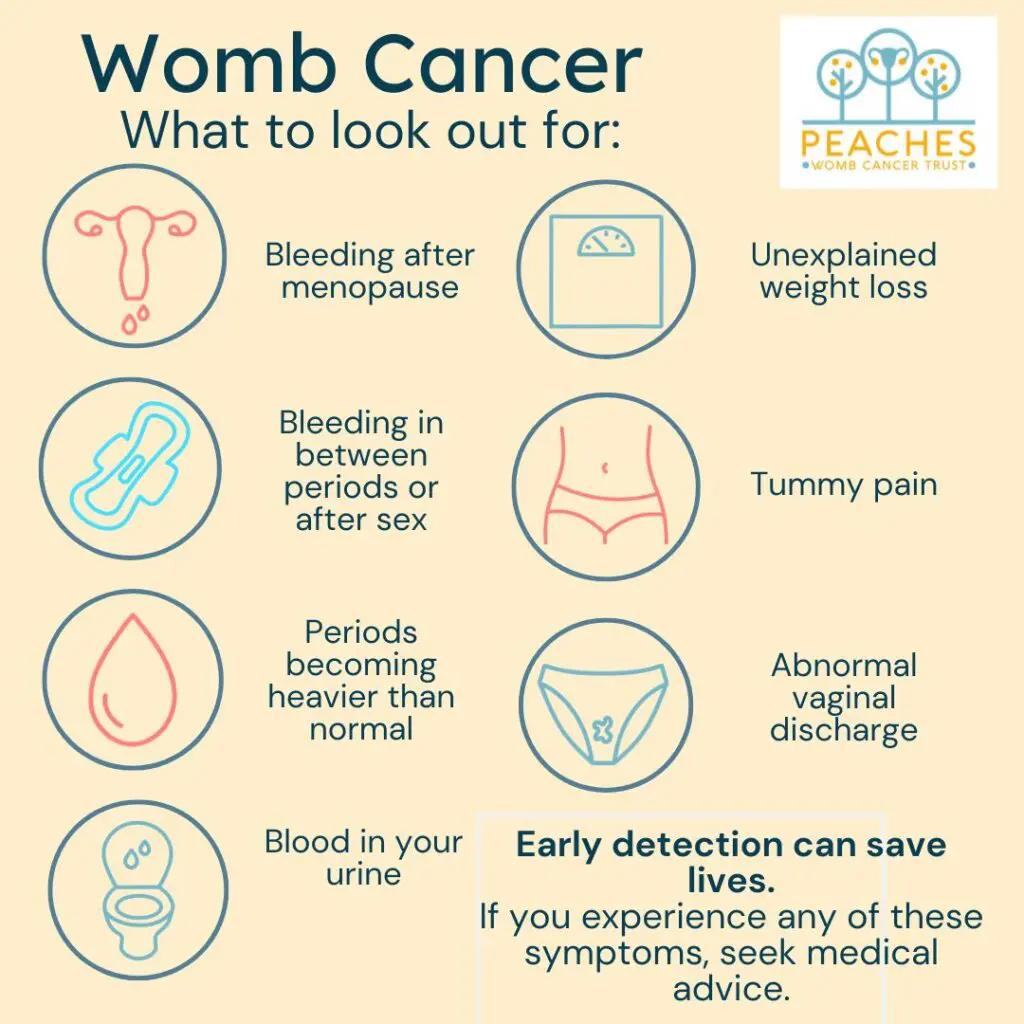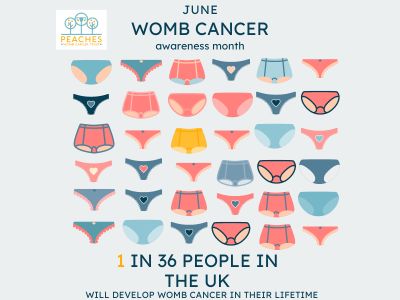Womb cancer is the fourth most common cancer for women in the UK – one in 36 women will be diagnosed in their lifetime.
If caught early, womb cancer can be very treatable. This is why visiting your GP as soon as you spot symptoms is incredibly important – 90% of womb cancer cases are caught due to unexplained or unexpected bleeding.
Almost three quarters of people diagnosed with womb cancer are aged between 40 and 74 – this means that many of these cases will be those who have been through the menopause.
However, no matter your age or whether you are premenopausal, it is still important to be aware of and look out for the key symptoms of womb cancer.

What is postmenopausal bleeding?
Postmenopausal bleeding is any vaginal bleeding after you have gone through the menopause (when you haven’t had a period for 12 months or more), including spotting or blood-stained discharge which can be pink, red or brown. If you are post-menopausal and notice any unexplained vaginal bleeding, it is always important to get it checked by a GP.
What are the signs and symptoms of womb cancer if you are premenopausal?
If you are premenopausal abnormal vaginal bleeding or discharge should not be ignored. If you are premenopausal and experience any bleeding or discharge which is unusual for you it is important to get it checked by a GP.
Global Action
This womb cancer awareness month we are joining the International Gynecologic Cancer Society (IGCS) working to raise global awareness of womb, or uterine, cancer. Together with womb cancer charities and organisations across the world we are calling for:
- barriers to diagnosis to be overcome;
- improved access to treatment once diagnosed;
- greater support for those living with or after womb cancer;
- an increased diversity in clinical research.
How you can help
Share Peaches’ social media posts to raise awareness of womb cancer, check out profiles on Facebook, Instagram and Twitter.
Fundraise or make a donation to help Peaches raise awareness, support patients, fund and promote research. Find out more on our Give Support page.
Thank you!


